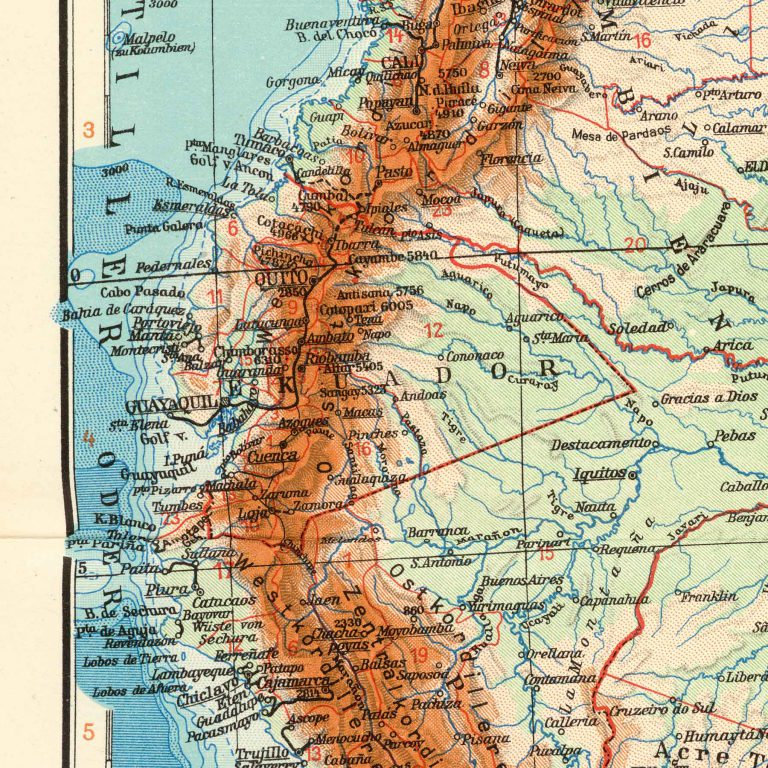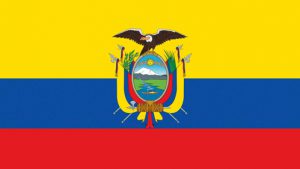
Ecuador
Policy on Immigration and Refugees
Through the end of the First World War, Ecuador is best known globally as an exporter of cacao. The cacao crisis of the early 1920s marks a turning point in the country’s history. A military coup by young officers against the liberal, oligarchical government begins a period of political instability that will last more than twenty years. Export revenues plummet. Agricultural oligarchs, banks, the military, a nascent labor movement, and the small middle class each attempt to assert their economic interests in the country’s unstable political system. Between 1925 and 1948, 27 different governments attempt to get a firm hold on political power in the impoverished country. As a result, 1930s Ecuador is largely absorbed in its own domestic politics. Following a coup, there are five different presidencies between August 1935 and the end of 1938.
Ecuador is a belated destination for émigrés even though the immigration laws are comparatively lenient. It is perceived as a no-man’s-land on the Jewish atlas: As of 1936, only around 100 Jews live in Ecuador. After nearly all other destination countries close their doors, it becomes one of the last places of refuge. Because of the unstable political environment in Ecuador, the consulates in Europe have extensive discretion in their issuance of visas. Some diplomats are generous with this power; others abuse it as a source of additional income. However, the honorary consul in Berlin, whose reputation for zealous antisemitism precedes him, prevents any attempt by Jews to move to Ecuador. Approximately 3,500 to 4,000 Jews take refuge in the country before 1942.
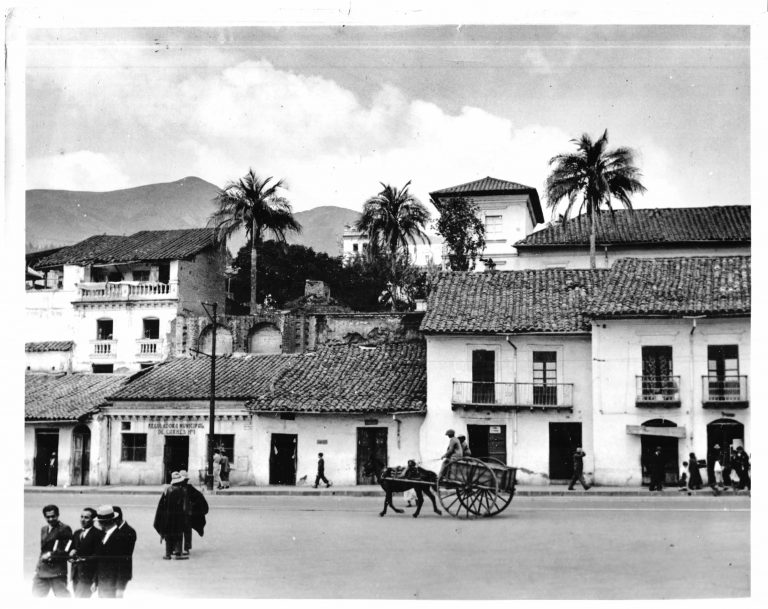
Street in Quito, 1936
After Cusco and Mexico City, Quito is one of the oldest cities in the Americas, and the descendants of the city’s indigenous founders and their Spanish conquerors live side by side. One motivation for the Ecuadorian government to allow mass settlement of European Jews is that it would dilute the indigenous share of the population.
Grace Line Press Photo
Street in Quito, 1936
After Cusco and Mexico City, Quito is one of the oldest cities in the Americas, and the descendants of the city’s indigenous founders and their Spanish conquerors live side by side. One motivation for the Ecuadorian government to allow mass settlement of European Jews is that it would dilute the indigenous share of the population.
Grace Line Press Photo
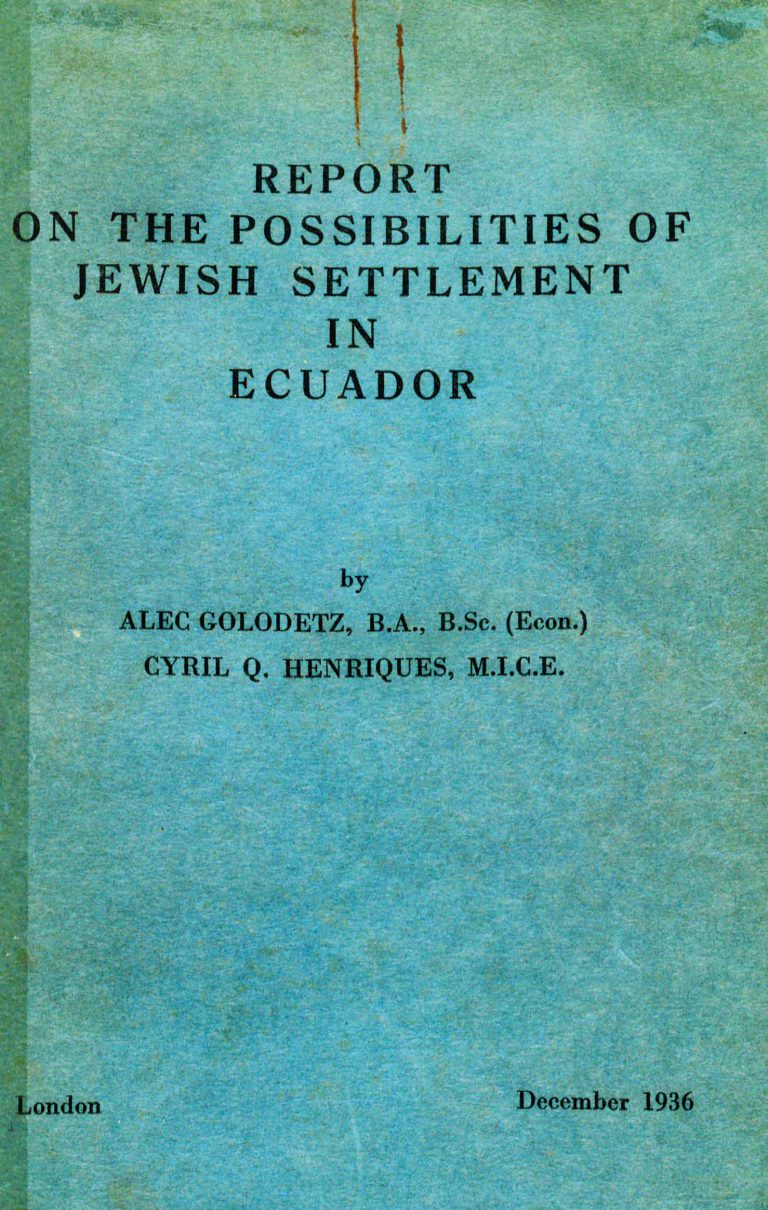
Report on the possibilities for Jewish settlement in Ecuador, December 1936
A private European initiative favors Ecuador as a destination of Jewish settlement. Two non-Zionist scholars from Britain spend two weeks in the country in summer 1936, then draft a report recommending that 50,000 Jews emigrate there.
Private collection
Report on the possibilities for Jewish settlement in Ecuador, December 1936
A private European initiative favors Ecuador as a destination of Jewish settlement. Two non-Zionist scholars from Britain spend two weeks in the country in summer 1936, then draft a report recommending that 50,000 Jews emigrate there.
Private collection
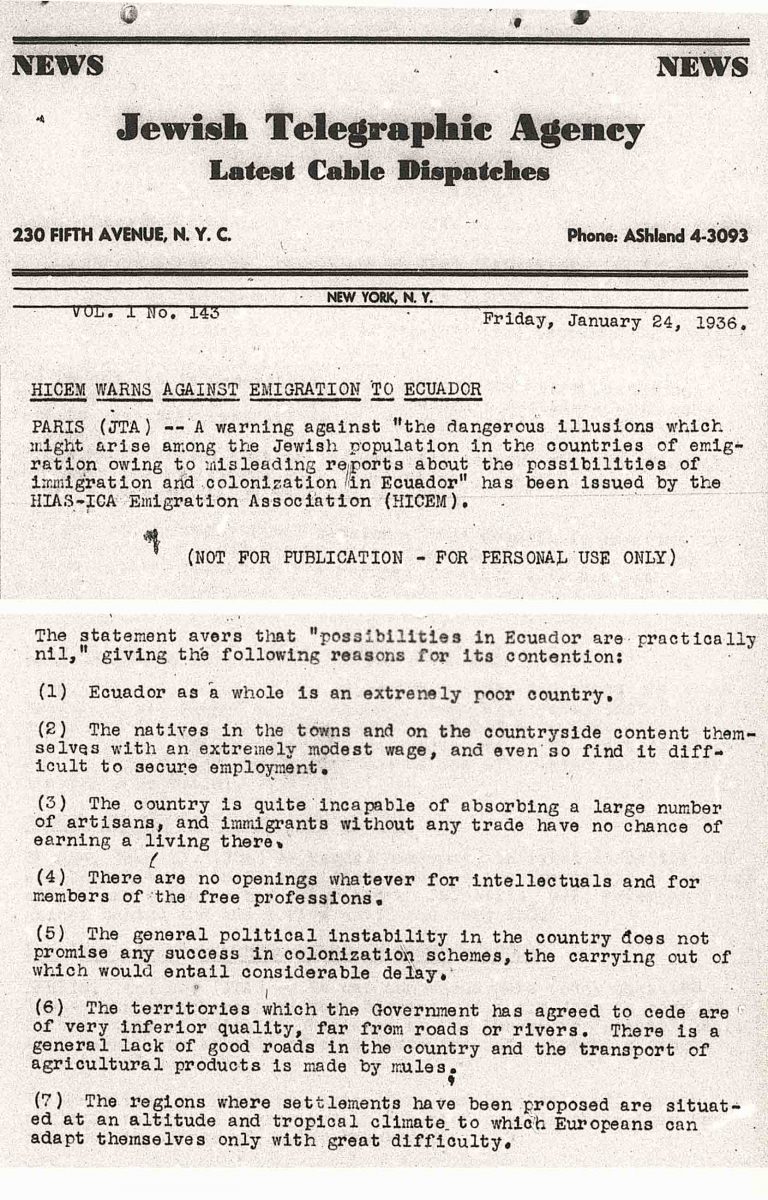
Jewish Telegraphic Agency: Latest Cable Dispatches, 24. Januar 1936
The Jewish immigrant aid organization HICEM, founded in 1927, cautions against emigrating to Ecuador.
Jewish Telegraphic Agency Archives, New York, NY
Jewish Telegraphic Agency: Latest Cable Dispatches, 24. Januar 1936
The Jewish immigrant aid organization HICEM, founded in 1927, cautions against emigrating to Ecuador.
Jewish Telegraphic Agency Archives, New York, NY
Delegation
Alejandro Gastelú Concha
* 2 June 1897 Esmeraldas † unknown
Born in Ecuador, Alejandro Gastelú Concha attends high school in Germany. After graduating, he studies agriculture in France and then in Switzerland, where he later begins his diplomatic career. In 1928, he moves to Geneva as the Ecuadorian vice consul and is promoted to general consul in 1935. His home country’s numerous changes in government have no effect on his vocation.
He only learns of the conference in Évian in passing from a Latin American colleague, who stresses the gathering’s representative nature. Gastelú Concha immediately contacts his government to request money for the trip to Évian. In the end, he takes out a personal loan to pay for it. After the conference, the argument over reimbursement of the travel costs occupies more space in his correspondence with the Foreign Ministry than descriptions of the actual debates and results of the conference.
In 1953, Gastelú Concha assumes the final post of his diplomatic career as a special envoy to Panama.
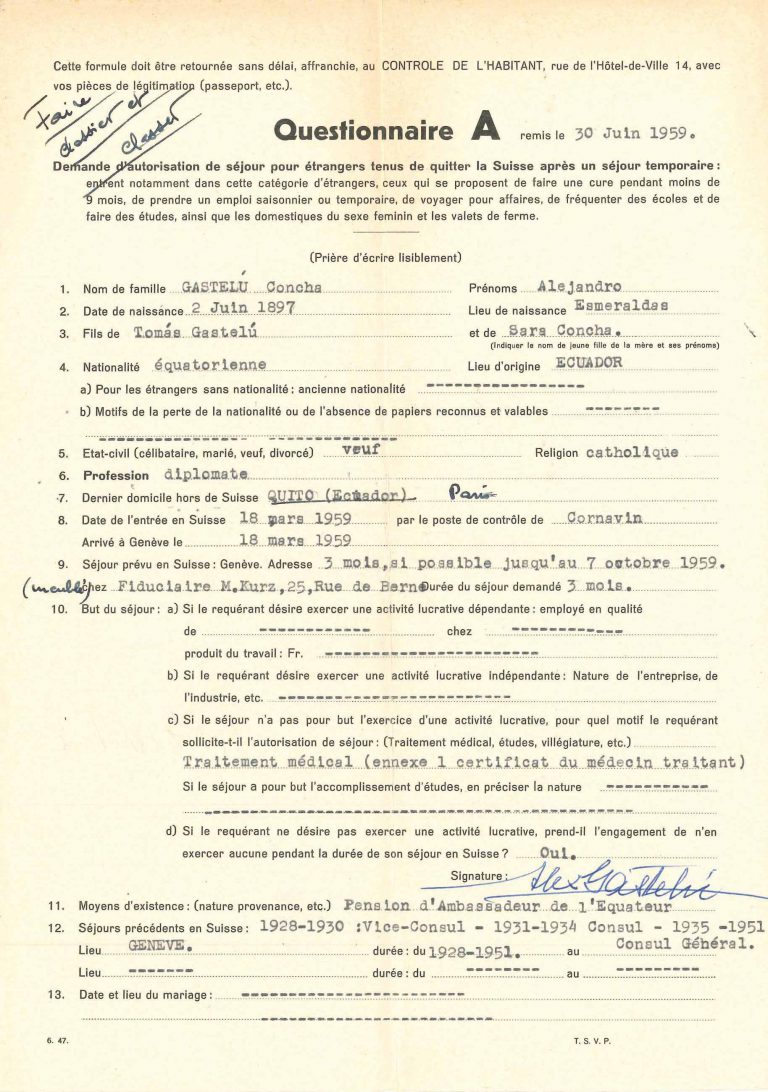
First page of registration form filled out by Gastelú on June 30, 1959 at the Geneva Residents‘ Registration Office (Contrôle de l‘habitant)
The former consul general returns to Geneva in 1959 for medical treatment.
Archives d’Etat de Genève, Genf
First page of registration form filled out by Gastelú on June 30, 1959 at the Geneva Residents‘ Registration Office (Contrôle de l‘habitant)
The former consul general returns to Geneva in 1959 for medical treatment.
Archives d’Etat de Genève, Genf
Conference Contributions
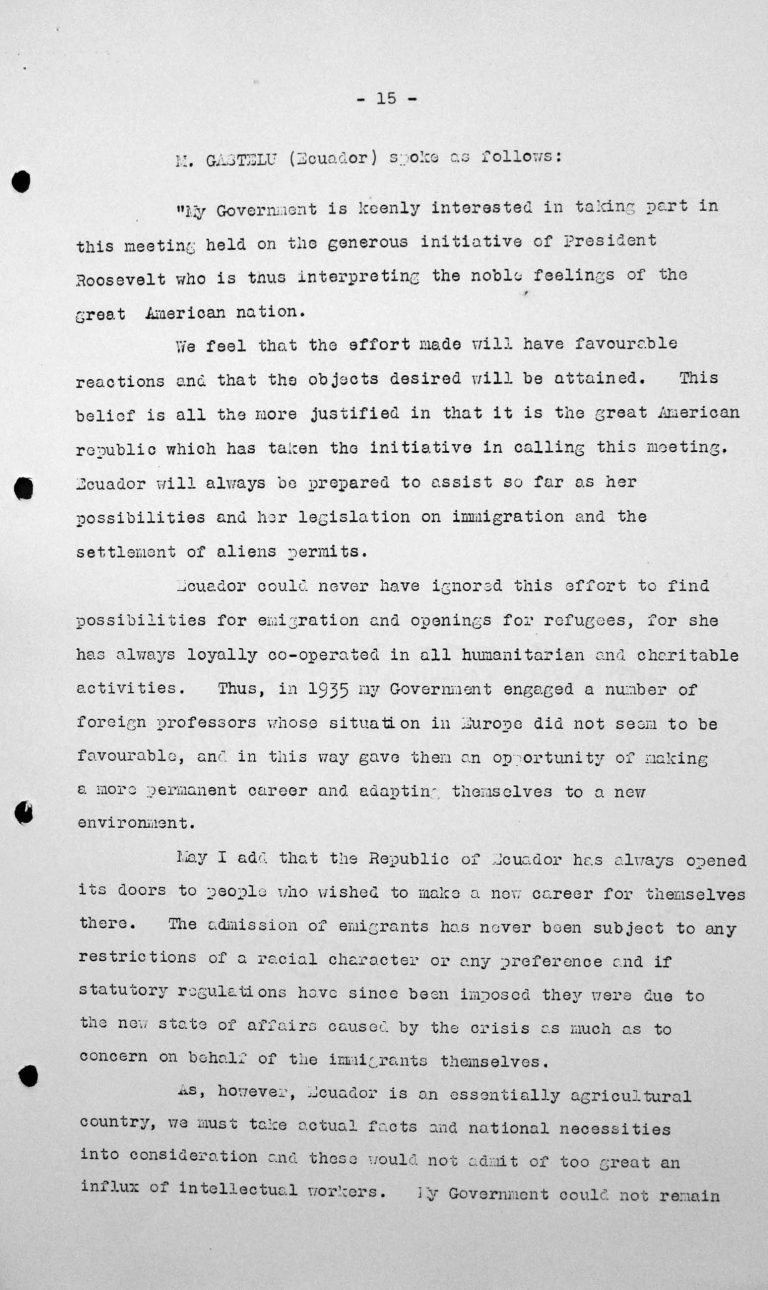
Speech by Alejandro Gastelú Concha (Ecuador) in the public session on July 9, 1938, 11am, p. 1/2
Franklin D. Roosevelt Library, Hyde Park, NY
Speech by Alejandro Gastelú Concha (Ecuador) in the public session on July 9, 1938, 11am, p. 1/2
Franklin D. Roosevelt Library, Hyde Park, NY
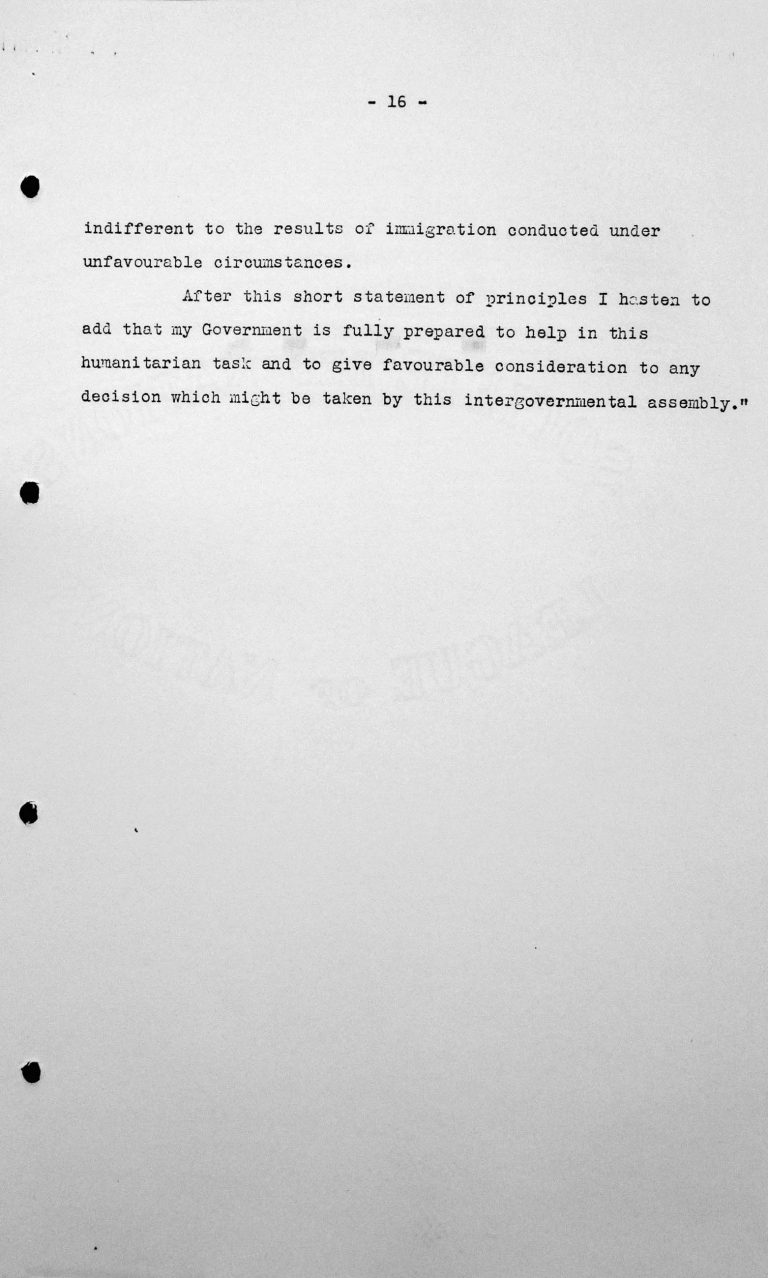
Speech by Alejandro Gastelú Concha (Ecuador) in the public session on July 9, 1938, 11am, p. 2/2
Franklin D. Roosevelt Library, Hyde Park, NY
Speech by Alejandro Gastelú Concha (Ecuador) in the public session on July 9, 1938, 11am, p. 2/2
Franklin D. Roosevelt Library, Hyde Park, NY
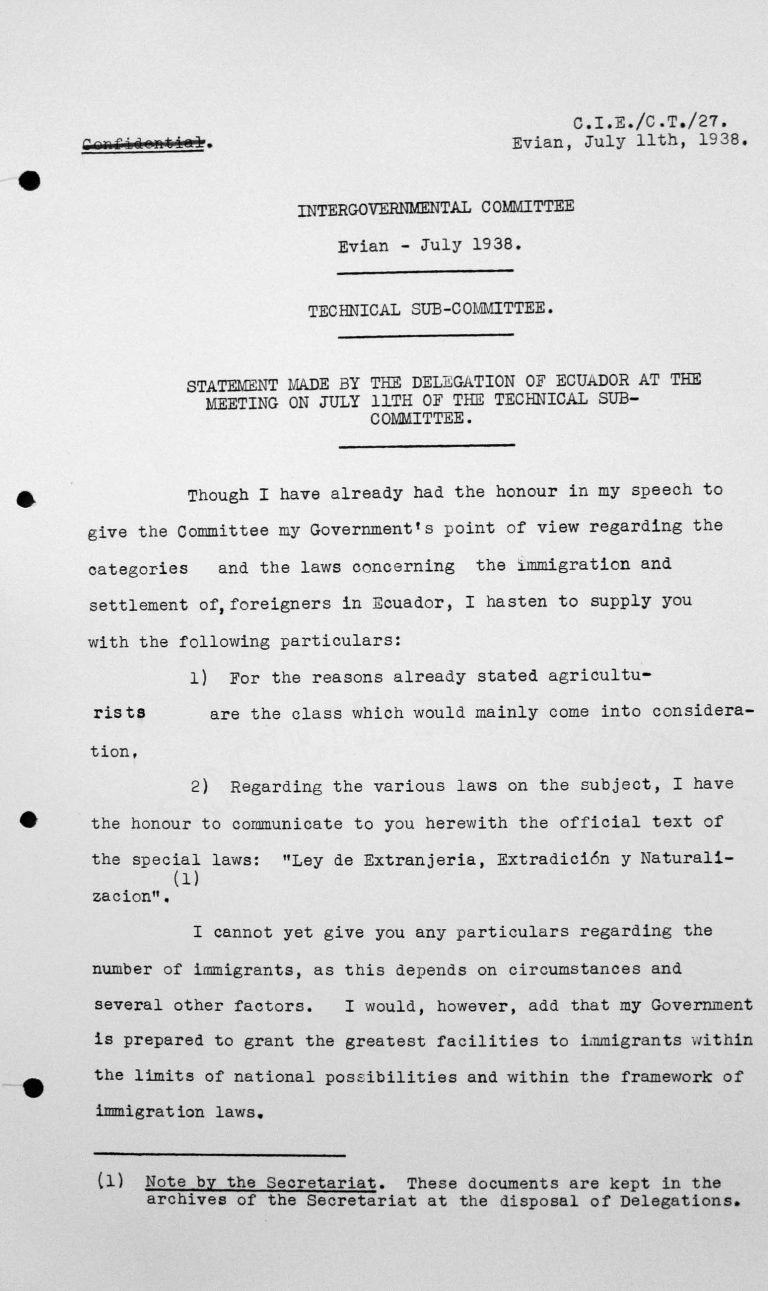
Statement made by the delegation of Ecuador at the meeting on July 11th of the Technical Sub-Committee
Franklin D. Roosevelt Library, Hyde Park, NY
Statement made by the delegation of Ecuador at the meeting on July 11th of the Technical Sub-Committee
Franklin D. Roosevelt Library, Hyde Park, NY
